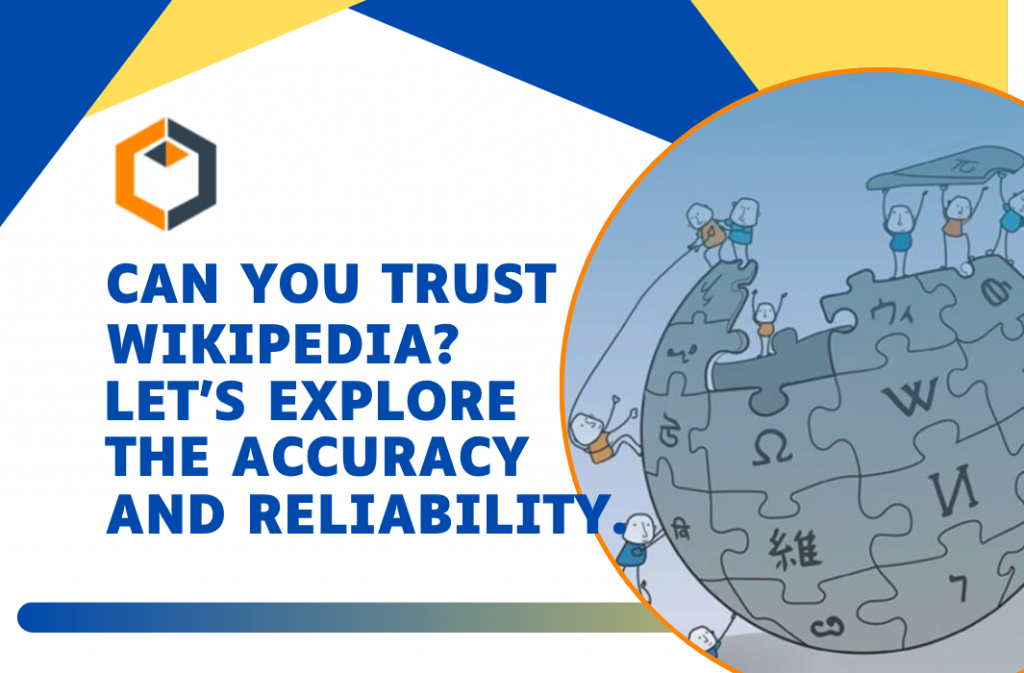Wikipedia has become one of the most popular sources of information on the internet. Containing millions of articles in over 300 languages, it is an excellent resource for looking up information on nearly anything. As its contents can be edited by anyone, many questions are raised on the accuracy and reliability of Wikipedia. Here in this article, we will discuss about the accuracy and the reliability of the Wikipedia contents.
One of the great things about Wikipedia is that it is transparent. With one click, users will be able to check the track record of any article, and can see which changes were made and they can even participate in the debates about content disputes. That’s why Wikipedia is becoming more famous day by day. Every business owner should have a Wikipedia page, which will help them to have a recognition in the competitive market.
The Case for Trusting Wikipedia.
After the launching of Wikipedia till now, so many students and teachers are trusting this platform for a basic source of knowledge. There are so many pages from where you can find information on any topic, but Wikipedia is the one which provides the perfect and structured knowledge on any topic. A Wikipedia page always has a to the point answer and proper details of every topic, so you can use a Wikipedia page for your academic research. For a long time, Wikipedia has been helping lots of researchers for its valuable source of information.
In topic areas like health, science, and history the majority of Wikipedia entries are maintained by experts or well informed enthusiasts who make sure data is current and correct. Moreover, Wikipedia’s transparency sets it apart. All edits are recorded and publicly viewable so that readers can see how articles have shifted and what has been added to or subtracted from them.
What are the strengths of Wikipedia: –
- Transparency and Accountability: –
Every change on Wikipedia is listed and visible. Users can see the history of any article’s edits as well as discussions about changes, promoting responsible behaviour and an opportunity for readers to investigate possible bias or recent debate. That’s why Wikipedia can be easily trusted. As you can see any edits even a small one can be visible on Wikipedia page, so you can easily trust Wikipedia for it’s transparency and accountability.
- Quick Updates
Unlike traditional encyclopaedias, Wikipedia changes its contents almost instantly. This makes it a useful source for learning about recent events, scientific discoveries, and developing news. Sometimes a Wikipedia page is the only easily accessible page for your resource of information. So, if you need any quick updates on any topic just go and search the topic on Wikipedia.
- Verified Sources
Wikipedia is all about providing reliable references, as it is very essential. In quality pieces, you can find numerous references to books, journal articles, and reputable news sites that help readers track and verify information. You can’t find any better option than wiki where you can find reliable and basic information with so many references at one place.
Limitations of Wikipedia pages: –
- Risk of Vandalism and Errors
Articles can occasionally be subject to vandalism or misinformation, since anyone can do the editing on Wikipedia. Even if volunteers notice these errors and correct them in time, those inaccuracies have the potential to misguide users for brief periods. So, you have to be alerted every time.
- Variable Article Quality
All Wikipedia articles are not equally good. Some are well researched and detailed, while others are incomplete or poorly sourced, especially on lesser-covered subjects. But for a good Wikipedia article creation you can hire any top Wikipedia content agency and post the engaging content on Wikipedia.
- Not a Primary Source
Indeed, Wikipedia warns readers not to treat it as a primary academic reference. It is more useful for warnings and finding original references than as a final authority. Wikipedia pages can’t be used as their primary source of information; however, you can use a Wikipedia page for your additional source of information.
Wikipedia’s Role in Education and Research: –
Many teachers discourage using Wikipedia directly in academic work, but this does not mean it lacks value. Wikipedia can be used by students and researchers for several things. Such as: –
- For quickly having initial concepts on any topic.
- For finding reputable sources, such as those listed under references.
- You can get the idea before you dive in for deeper research.
Final words: – Wikipedia can be a valuable tool for learning if used wisely. Readers need to verify citations, look at edit histories, and cross reference significant facts with other trustworthy sources. Wikipedia is generally reliable when you need basic understanding of a topic but not for your primary source of information.

